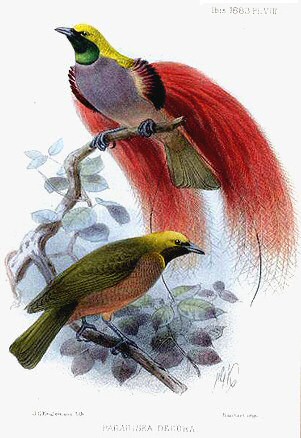|
Joseph Thomas Cunningham
Joseph Thomas Cunningham (1859–1935) was a British marine biologist and zoologist known for his experiments on flatfish and his writings on neo-Lamarckism. Career Cunningham worked at the London Hospital Medical College. He completed his science scholarship at Balliol College, Oxford. Cunningham was a neo-Lamarckian. In his book ''Hormones and Heredity'' (1921) he proposed that the mechanism for the inheritance of acquired characteristics were hormones. He termed this "chemical Lamarckism". According to science historian Peter J. Bowler the idea held by Cunningham that hormones transferred from one generation to the next independent of the germ plasm was seen at the time by neo-Lamarckians as a plausible hypothesis, however "its advocates were unable to get beyond the stage of providing indirect evidence for the effect they postulated." Experiments In a series of experiments (in 1891, 1893 and 1895) on the action of light on the coloration of flatfish, Cunningham directed light ... [...More Info...] [...Related Items...] OR: [Wikipedia] [Google] [Baidu] |
Marine Biology
Marine biology is the scientific study of the biology of marine life, organisms in the sea. Given that in biology many phyla, families and genera have some species that live in the sea and others that live on land, marine biology classifies species based on the environment rather than on taxonomy. A large proportion of all life on Earth lives in the ocean. The exact size of this ''large proportion'' is unknown, since many ocean species are still to be discovered. The ocean is a complex three-dimensional world covering approximately 71% of the Earth's surface. The habitats studied in marine biology include everything from the tiny layers of surface water in which organisms and abiotic items may be trapped in surface tension between the ocean and atmosphere, to the depths of the oceanic trenches, sometimes 10,000 meters or more beneath the surface of the ocean. Specific habitats include estuaries, coral reefs, kelp forests, seagrass meadows, the surrounds of seamounts and therm ... [...More Info...] [...Related Items...] OR: [Wikipedia] [Google] [Baidu] |
Cambridge University Press
Cambridge University Press is the university press of the University of Cambridge. Granted letters patent by Henry VIII of England, King Henry VIII in 1534, it is the oldest university press A university press is an academic publishing house specializing in monographs and scholarly journals. Most are nonprofit organizations and an integral component of a large research university. They publish work that has been reviewed by schola ... in the world. It is also the King's Printer. Cambridge University Press is a department of the University of Cambridge and is both an academic and educational publisher. It became part of Cambridge University Press & Assessment, following a merger with Cambridge Assessment in 2021. With a global sales presence, publishing hubs, and offices in more than 40 Country, countries, it publishes over 50,000 titles by authors from over 100 countries. Its publishing includes more than 380 academic journals, monographs, reference works, school and uni ... [...More Info...] [...Related Items...] OR: [Wikipedia] [Google] [Baidu] |
Raphael Meldola
Raphael Meldola FRS (19 July 1849 – 16 November 1915) was a British chemist and entomologist. He was Professor of Organic Chemistry in the University of London, 1912–15. Life Born in Islington, London, he was descended from Raphael Meldola (1754–1828), a theologian who was acting minister of the Spanish and Portuguese Jews in London, 1804. Meldola was the only son of Samuel Meldola; married (1886) Ella Frederica, daughter of Maurice Davis of London. He was educated in chemistry at the Royal College of Chemistry, London. There is a portrait of Meldola (oil on canvas) by Solomon J. Solomon in the Royal Society collection; also a photograph by Maull & Fox, visiting card size. Career Meldola worked in the private laboratory of John Stenhouse (FRS 1848). He was appointed Lecturer, Royal College of Science (1872) and assisted Norman Lockyer with spectroscopy. Meldola was in charge of the British Eclipse Expedition to the Nicobar Islands (1875) and was Professor of Chemi ... [...More Info...] [...Related Items...] OR: [Wikipedia] [Google] [Baidu] |
The Zoologist
''The Zoologist'' was a monthly natural history magazine established in 1843 by Edward Newman and published in London. Newman acted as editor-in-chief until his death in 1876, when he was succeeded, first by James Edmund Harting (1876–1896), and later by William Lucas Distant (1897–1916). Originating from an enlargement of '' The Entomologist'', ''The Zoologist'' contained long articles, short notes, comments on current events, and book reviews covering the entire Animal Kingdom throughout the world, until ''The Entomologist'' was separated again in 1864. Initially, half of the space was devoted to birds, rising to two-thirds later. In 1916 ''The Zoologist'' was amalgamated with '' British Birds'' (founded 1908).. See alsotitle page of vol. 10, issue 8(in BHL) with the text "With which is incorporated 'The Zoologist'". Founders At the death of Frederick Bond, in 1889, James Edmund Harting, who was then the editor of ''The Zoologist'', wrote an extensive memorial ... [...More Info...] [...Related Items...] OR: [Wikipedia] [Google] [Baidu] |
Sexual Characteristics
Sexual characteristics are physical traits of an organism (typically of a sexually dimorphic organism) which are indicative of its biological sex. These can include sex organs used for reproduction and secondary sex characteristics which distinguish the sexes of a species, but which are not directly part of the reproductive system. Humans In humans, sex organs or primary sexual characteristics, which are those a person is born with, can be distinguished from secondary sex characteristics, which develop later in life, usually during puberty. The development of both is controlled by sex hormones produced by the body after the initial fetal stage where the presence or absence of the Y-chromosome and/or the SRY gene determine development. Hormones that express sexual differentiation in humans include: * estrogens * progesterone * androgens such as testosterone Typical sexual characteristics The following table lists the typical sexual characteristics in humans: Invertebr ... [...More Info...] [...Related Items...] OR: [Wikipedia] [Google] [Baidu] |
Sexual Selection
Sexual selection is a mode of natural selection in which members of one biological sex mate choice, choose mates of the other sex to mating, mate with (intersexual selection), and compete with members of the same sex for access to members of the opposite sex (intrasexual selection). These two forms of selection mean that some individuals have greater reproductive success than others within a population, for example because they are more Animal sexual behaviour, attractive or prefer more attractive partners to produce offspring. Successful males benefit from frequent mating and monopolizing access to one or more fertile females. Females can maximise the return on the energy they invest in reproduction by selecting and mating with the best males. The concept was first articulated by Charles Darwin who wrote of a "second agency" other than natural selection, in which competition between mate candidates could lead to speciation. The theory was given a mathematical basis by Ronald F ... [...More Info...] [...Related Items...] OR: [Wikipedia] [Google] [Baidu] |
Thomas Hunt Morgan
Thomas Hunt Morgan (September 25, 1866 – December 4, 1945) was an American evolutionary biologist, geneticist, embryologist, and science author who won the Nobel Prize in Physiology or Medicine in 1933 for discoveries elucidating the role that the chromosome plays in heredity. Morgan received his Ph.D. from Johns Hopkins University in zoology in 1890 and researched embryology during his tenure at Bryn Mawr. Following the rediscovery of Mendelian inheritance in 1900, Morgan began to study the genetic characteristics of the fruit fly ''Drosophila melanogaster''. In his famous Fly Room at Columbia University's Schermerhorn Hall, Morgan demonstrated that genes are carried on chromosomes and are the mechanical basis of heredity. These discoveries formed the basis of the modern science of genetics. During his distinguished career, Morgan wrote 22 books and 370 scientific papers. As a result of his work, ''Drosophila'' became a major model organism in contemporary genetics. The ... [...More Info...] [...Related Items...] OR: [Wikipedia] [Google] [Baidu] |
William Bateson
William Bateson (8 August 1861 – 8 February 1926) was an English biologist who was the first person to use the term genetics to describe the study of heredity, and the chief populariser of the ideas of Gregor Mendel following their rediscovery in 1900 by Hugo de Vries and Carl Correns. His 1894 book ''Materials for the Study of Variation'' was one of the earliest formulations of the new approach to genetics. Early life and education Bateson was born 1861 in Whitby on the Yorkshire coast, the son of William Henry Bateson, Master of St John's College, Cambridge. He was educated at Rugby School and at St John's College, where he graduated BA in 1883 with a first in natural sciences. Taking up embryology, he went to the United States to investigate the development of ''Balanoglossus'', a worm-like hemichordate which led to his interest in vertebrate origins. In 1883–4 he worked in the laboratory of William Keith Brooks, at the Chesapeake Zoölogical Laboratory in Hampton, ... [...More Info...] [...Related Items...] OR: [Wikipedia] [Google] [Baidu] |
Geneticist
A geneticist is a biologist or physician who studies genetics, the science of genes, heredity, and variation of organisms. A geneticist can be employed as a scientist or a lecturer. Geneticists may perform general research on genetic processes or develop genetic technologies to aid in the pharmaceutical or and agriculture industries. Some geneticists perform experiments in model organisms such as ''Drosophila'', ''C. elegans'', zebrafish, rodents or humans and analyze data to interpret the inheritance of biological traits. A basic science geneticist is a scientist who usually has earned a PhD in genetics and undertakes research and/or lectures in the field. A medical geneticist is a physician who has been trained in medical genetics as a specialization and evaluates, diagnoses, and manages patients with hereditary conditions or congenital malformations; and provides genetic risk calculations and mutation analysis. Education Geneticists participate in courses from many are ... [...More Info...] [...Related Items...] OR: [Wikipedia] [Google] [Baidu] |







